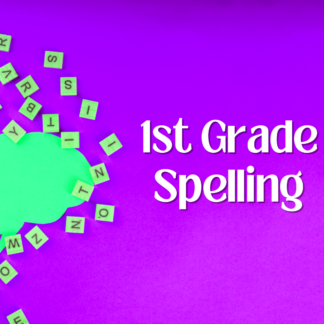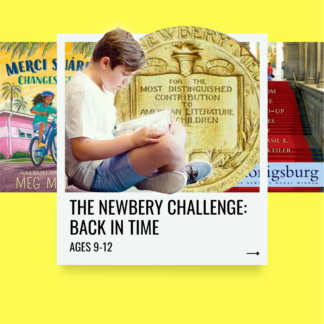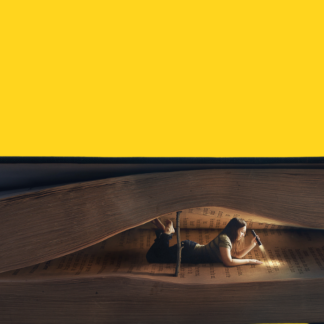Description
Introduction:
We love stories because they reveal aspects of the human condition. Literature makes people think deeply about life. We study literature while applying a biblical lens to that human condition, which is practice for applying biblical principles in our own lives. We don’t just tack on a verse of scripture in our curriculum; instead, we are diving deep into the Bible first to establish and understand what God’s word says about life and the human condition. Then we practice how to live a biblical life by analyzing and evaluating literature according to precepts in the Bible. Additionally, older, classical literature is written with rich vocabulary, beautiful imagery, layered themes, and complex sentence structures; further, they contain ideas that make us ponder ourselves and our world deeply. When we study classic literature through a biblical worldview, we can better understand our world and strengthen our Christian perspective on life. The stories chosen in this curriculum have some value of beauty in regard to the literature and help us bring out important biblical principles.
Short stories are special.
Short literature quickly introduces us to characters, settings, conflicts, and themes that relate to our lives. These authors are a special breed as well, able to craft a satisfying, thought-provoking story that we can read in one sitting. Stories reflect life and help us understand God and see ourselves and the world in which we live correctly when understood from a biblical perspective. In this course, we will use classic short stories to learn how to analyze literary devices, figurative language, story elements, characterization, theme, etc. while thinking about and discussing essential questions.
THREE YEARS?
As students continue through the literature, they have requested more literature, so they can remain in the class for yet another year. Therefore, we are working to add more short stories and literature so students can take this class for three years if they wish. We are grateful for your loyalty and honored to experience so much literature together for years! ?
? A COMPLETE HIGH SCHOOL CURRICULUM:
Even though this is an ongoing class, if students remain enrolled throughout the year, they will complete a year of high school English in 30 weeks. We usually take a week off in November and two-three weeks off in December. Students can come and go as they like. Students complete various types of writing, read, analyze, and evaluate literature, and meet communication standards in Socratic Seminars.
?️ FLEXIBILITY:
The benefit of this being an ongoing class is that students can pop in and out as they are able. Taking vacation? Pause the subscription and don’t feel like you need to make up the work. Enjoy a vacation and do the learning that is inherent in travel. Sick? Take a break and recover. One of the best aspects of homeschooling is flexibility, and this class enables you to be as flexible as you need. You can also remain enrolled and watch the recordings.
? SOCRATIC SEMINARS:
After teaching this class online for three years, I moved to a Socratic Seminar style of discussion on the second live class. This empowers high school students to “own” their conversations and to be active participants. The discussion is much more thoughtful and students are more engaged as a result. The teacher guides them along, especially on the first day, as they prepare for the discussion; additionally, the Socratic Seminar Prep Sheet work they do between live classes helps them think deeply about what they read. This class requires a lot of participation!
DETAILED PICTURE OF ONE WEEK:
♦ THE FIRST CLASS OF THE WEEK: In the first class, students prepare to read by discussing essential questions and building a foundation of biblical truth. Then, we read the short story together, and the instructor annotates the story as we read. This vastly improves reading comprehension and models for students how to do a close read. After reading, the instructor teaches aspects of the literature: author’s craft, literary elements, figurative language, irony, etc. Depending on the time available, they will write their own questions for the Socratic Seminar and the instructor will give feedback on the quality of their questions.
♣️ HOMEWORK: Students will do some Bible study to continue developing a foundation of truth. Then, they reread the story and annotate it themselves, learning to evaluate literature from a Christian perspective. They complete asynchronous work in the classroom, which will take 60-90 minutes, depending on the length of the story. They turn this work in and they are graded.
♥️ THE SECOND CLASS OF THE WEEK: Each student is given the opportunity to evaluate the story for its entertainment value and literary value, defending their ratings by using literary terms. It is my hope that they start to understand who they are as readers and begin to understand what kind of literature they like and don’t like and why. The most fun is our BATTLE OF THE GIFs. Students have to find a GIF that illustrates the story, and we vote on the most creative and hilarious! Students will then have a student-led and teacher-supported Socratic Seminar, working to answer the essential questions, formulating theme statements, discussing the author’s craft and worldview, and analyzing and evaluating the piece of literature. The teacher will assign the writing homework and instruct them on how to organize their writing based on the prompt.
♠️ HOMEWORK (WRITING COMPONENT): Students complete a writing assignment, which should take 30-60 minutes. The essays vary from informative, argumentative, literary analysis, literature response, and even creative writing. When they submit their work, the teacher will give feedback on their writing in the areas of ideas, analytical thinking, support of a thesis, conventions, creativity, and writing style.
? GRADES:
The teacher’s feedback is based on the mastery of concepts and skills, and traditional grades are given. Students may redo their writing based on the teacher’s feedback and suggestions. Your teacher can also provide assistance in getting information ready for NCAA approval of this coursework.
Classic Short Literature – The Schedule:
September-
- “Ruthless” by William de Mille
- “The Most Dangerous Game” by Richard Connell
- “Araby” by James Joyce and “Witches’ Loaves” by O. Henry
- “To Build a Fire” by Jack London
October-
- “The Bet” by Anton Chekhov
- “Young Goodman Brown” by Nathanial Hawthorne
- “The Celebrated Jumping Frog of Calaveras County” by Mark Twain
- “The Body Snatcher” by Robert Louis Stevenson
November-
- “The Black Cat” by Edgar Allan Poe
- “The Yellow Wallpaper” by Charlotte Perkins Gilman
- “Lamb to the Slaughter” by Roald Dahl
**No coursework the week of Thanksgiving. Enjoy time with your family! Your subscription will be paused automatically.**
December-
- “Rip Van Winkle” by Washington Irving
- “The Landlady” by Roald Dahl
- “The Reluctant Dragon” by Kenneth Grahame
**No coursework from December 22-Jan 4. Merry Christmas! Your subscription will be paused automatically.**
January-
- “Ali Baba and the Forty Thieves” by anonymous (Arabian Nights)
- “A New England Nun” by Mary E. Wilkins Freeman
- “An Occurrence at Owl Creek Bridge” by Ambrose Bierce
- “Story of an Hour” by Kate Chopin
February-
- “The Cask of Amontillado” by Edgar Allan Poe
- “A Good Man is Hard to Find” by Flannery O’Connor
- “The Masque of Red Death” by Edgar Allan Poe
- “A Jury of Her Peers” by Susan Glaspell
March-
- “The Tell-Tale Heart” by Edgar Allan Poe
- “A Retrieved Reformation” by O. Henry
- “The Sound of Thunder” by Ray Bradbury
- “A Case of Identity” by Sir Arthur Conan Doyle
- “The Fall of the House of Usher” by Edgar Allan Poe
April-
- “The Ones Who Walk Away From Omelas” by Ursula Le Guin
- “The Lady or the Tiger” by Frank Stockton
Class Ends on April 19th. Happy Summer!
Doctrinal Statement
We have adopted The Master’s Seminary Doctrinal Statement. Learn more about Karen Lemons, the course author.
Parental Guidance:
***While we read many touching and sweet stories, others have mature themes, such as murder, violence, suicide, revenge, alcohol, death, prejudices, racism, guilt, betrayal, etc., and are intended for mature secondary students. For example, in Edgar Allan Poe’s classic tale, “The Cask of Amontillado,” the main character is a murderer getting revenge. He takes a drunken man down to a cellar and buries him alive. We read everything with a biblical worldview, so in this example, students learn what the Bible says about taking revenge, the potential for wickedness in men, and the dangers of drunkenness. We study a heavy dose of Proverbs with this particular story. I avoid stories with sexual themes as well as modern stories. The stories we do read are classics and most–if not all–were written a century ago or longer and are commonly read in high schools. They help students understand the world in which they live as they ponder deep questions that are as relevant now as they were then. Stories are written with a Lexile score between 700-1400. I encourage students to talk to their parents about the stories and the issues they study in the lessons.***





